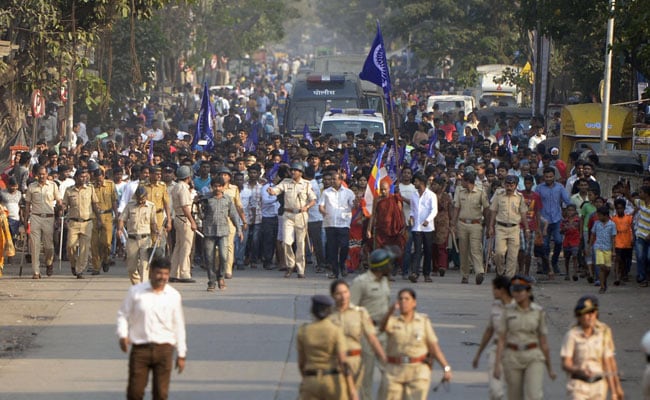
The Bombay High Court Wednesday junked a lower court's order, which had granted police more time to file the charge sheet against lawyer Surendra Gadling and others, who were arrested in June for alleged Maoist links in the aftermath of violence at Bhima Koregaon near Pune.
While the ruling can pave the way for Mr Gadling and the other accused to seek bail, Justice Mridula Bhatkar stayed her own order from becoming effective till November 1 so that the government could file an appeal in the Supreme Court.
In the ruling, Justice Bhatkar questioned how the police officers were allowed to make arguments independently before the Pune court, seeking additional time.
"This shows the investigating officer has navigated (argued on) the application for extension of the period by further 90 days, which is not contemplated under the law," the high court said.
"The investigating officer is always interested in the success of or conviction in the case. However, it is the duty of the public prosecutor to assist the court in the process of administration of justice by upholding the law," the judge said.
Mr Gadling challenged the Pune court's order extending the time given to the police to file the charge sheet and the consequent refusal of bail to him. He argued that the prosecution had failed to follow the due procedure while seeking the extension.
The Pune Police arrested Mr Gadling, Nagpur University professor Shoma Sen, Dalit activist Sudhir Dhawale, activist Mahesh Raut and Kerala native Rona Wilson in June for their alleged links with Maoists under the Unlawful Activities (Prevention) Act (UAPA).
The arrests had followed raids at their residences and offices in connection with the Elgar Parishad conclave held in Pune on December 31 last year, which, the police had claimed, had led to violence at Bhima Koregaon the next day.
The police had also alleged that the conclave had the support of Maoists.
Under the UAPA, a charge sheet must be filed within 90 days of arrest. However, the prosecutor can file a report before the trial court, explaining the reasons for a delay, and seek more time. If satisfied, the court can extend the time by 90 days.
In the present case, the Pune sessions court had granted the police the additional 90 days, following an application from the investigating officer (IO) and written submissions by an assistant commissioner of police (ACP).
Mr Gadling challenged this, saying the report and the submissions came from the police, not the prosecutor. Under the Act, the report should be filed by the prosecutor, he said.
Advocate General Ashutosh Kumbhakoni, who appeared for the Maharashtra government, argued that the emphasis must be on "satisfaction of the court" and not "the format of the report".
The word "report" in the Act must not be taken too literally and the police reports in the present case bore the signature of the public prosecutor, he said.
Justice Bhatkar dismissed the argument, saying it was apparent from the IO's report and the ACP's submissions that the prosecutor did not play any role in preparing them.
By allowing the IO to argue independently, the Pune court had committed an "illegality", the high court said.
On the state government's request, the judge stayed the operation of her order till November 1.
Meanwhile, in the light of the high court's order, the sessions court in Pune said Wednesday that it will hear the bail applications of Gadling and Shoma Sen after November 1.
The trial court also said it will pass orders on bail applications of activists Vernon Gonsalves, Arun Ferreira and Sudha Bharadwaj on October 26. These three activists were among those arrested in August in the same case.
The arguments on their bail pleas are over. The Pune Police said they would approach the Supreme Court challenging the high court order.
"We have time till November 1. We will pursue the matter in the Supreme Court," said Joint Commissioner of Police Shivaji Bodakhe.
Track Latest News Live on NDTV.com and get news updates from India and around the world

